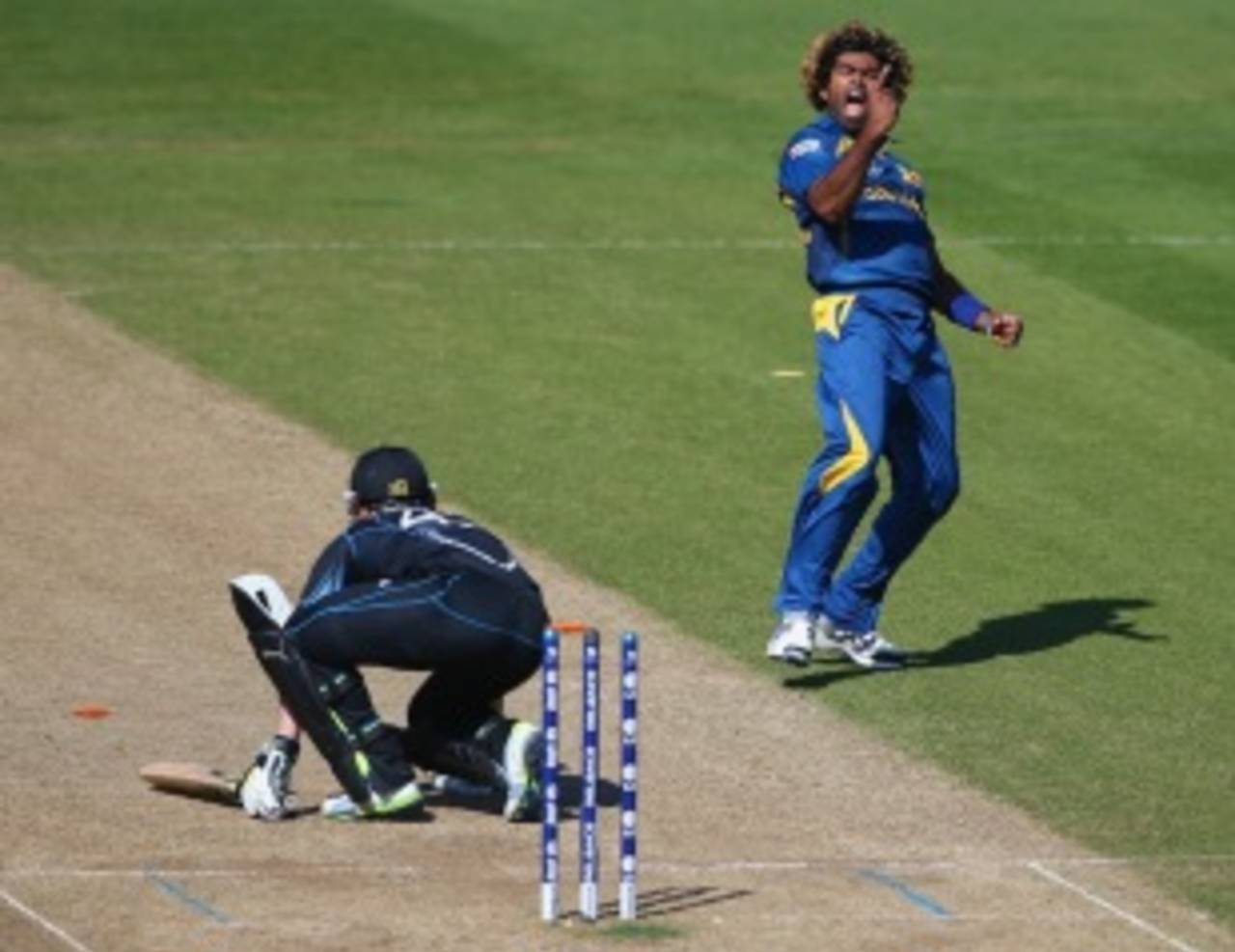Over the last few of days, there have been a couple of close, low-scoring games in the Champions Trophy. Both have been won by the team chasing with plenty of overs to spare, but they've been nail-biters because in both instances the winning teams had to rely on their last couple of wickets to do the job. West Indies squeezed past Pakistan's 170 with 56 balls to spare but only
two wickets in hand, while New Zealand were very nearly unsuccessful in their quest for 139 against Sri Lanka,
winning only by one wicket even though they had 13.3 overs in hand. The other two results in each of the two groups - India beating South Africa in group B and England trouncing Australia in A - were clearly more convincing wins.
However, you wouldn't know that if you looked at the points table, for New Zealand are on top in group A and West Indies in B. That's because of the net run rates, which is the method used to break the deadlock if teams are level on points in multi-team tournaments. The NRR takes into account only the run rates of teams, and is calculated as the difference between the batting run rate of a team and the bowling economy rate over the entire tournament. A team which is all out is considered to have faced the full quota overs. However, in non-all-out situations, wickets lost isn't factored in at all. Thus, New Zealand benefit because the method considers the fact that they won with 81 balls to spare, but ignores the fact that they were nine down when they did so. Hence, their NRR of 1.048 is superior to England's 0.960. Even their most ardent supporter would admit, though, that England's win was far more convincing. Group B's scenario with West Indies and India is exactly the same. This method of ranking teams which are level on points was designed to reward comprehensive wins, but that surely isn't working here.
Limited-overs cricket is clearly a game where teams need to juggle with two sets of resources - overs and wickets in hand. Depletion of either of those resources, with respect to the target before the team, is a sign that the team's in trouble. Any method which is used to differentiate between teams on equal points should therefore consider both these factors when judging how comprehensive the victory was. The NRR method fails to do that. There have been other debates and arguments on the shortcomings of the NRR, but this is clearly the greatest one.
A possible solution here is to use the rain rule to decide the margin. In the case of the New Zealand-Sri Lanka match, the par score for New Zealand when nine down in 36.3 overs is 132. Since they won the match at this stage, they were seven runs ahead of the par score, which thus becomes the margin of victory. Since England's margin of victory over Australia was 48 runs, they would clearly be the group leaders. However, if New Zealand had won in the same number of overs for the loss of four wickets, then the margin by the D-L method would have been 52 runs.
Similarly, the margin of victory for West Indies over Pakistan would have been 20 runs by this method. Since India beat South Africa by 28, they'd have been the group B table-toppers at this stage. The victory margins in games which are won by the team batting first are anyway in terms of runs, so this option allows all match results to be expressed in terms of runs. It can be further argued that these margins should further take into account the target, so that a ten-run margin in a low-scoring game counts for more than the same margin in a high-scoring one.
As things stand in this tournament, there could be a scenario - however unlikely it seems at the moment - in which New Zealand and England finish with the same number of points, and are fighting for second place in the group. If New Zealand stay ahead of England on NRR based on their one-wicket victory in Cardiff, it'll surely be a travesty.
